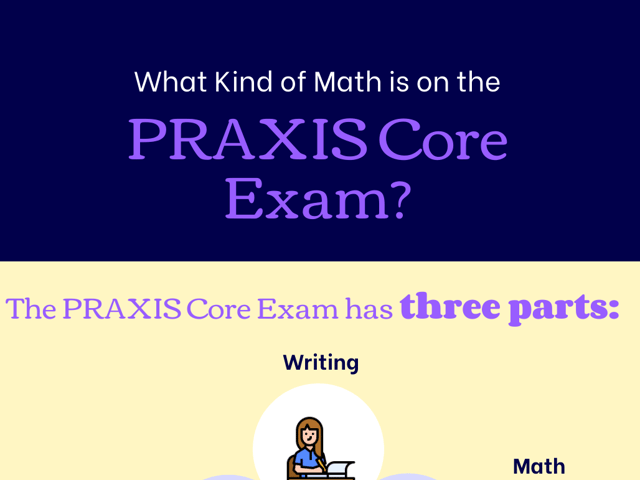
Writing on the PRAXIS® Test
What Is the PRAXIS® Test?
The PRAXIS® test is designed to measure your knowledge and your ability to instruct others. As an exam measuring your teaching ability, the PRAXIS® test will focus on not only being able to understand the questions and information given, but also being able to turn that knowledge around and deliver it in a clear, concise way. The PRAXIS® Writing test is delivered on a computer, and consists of 40 multiple-choice questions and 2 essay questions.
What Is Covered in the Writing Section of the Test?
As in the other test sections, the PRAXIS® Writing test assesses your knowledge of all parts of the writing process as well as your ability to translate that knowledge into meaningful lessons for students. The multiple-choice section focuses on usage, correcting sentences, revising, and researching, while the essays will be written in an argumentative and/or explanatory manner.
Focusing on the Little Things
Usage and correction both involve your ability to correctly identify which words, punctuation marks, and grammatical rules should be used in a sentence or paragraph. Usage includes asking what the audience needs, what the author is hoping to convey, and in what tone the piece should be structured. Punctuation marks include the standard sentence endings (periods, question marks, and exclamation points), as well as commas, colons, semicolons, and dashes. Reading alone can help you become accustomed to correct usage, but be sure to study the different tones, points of view, and styles of writing, as well as the different ways punctuation marks are supposed to be used.
Judging a Piece as a Whole
Revising and researching involve fixing any overall errors in a work and searching through a piece of writing to find relevant facts and information designed to support a certain thought or idea. When answering revision questions, focus on which answer is best, not only which answer is right; there are often many different ways to structure a sentence, a paragraph, or an entire essay, but only one of them will deliver the precise tone and style the author wants. Similarly, when researching, focus on the exact question, and find facts that directly relate to that question. If information is only slightly related to the text, it is unlikely to be a good source of support.
Essays
When writing essays, there are a few elements that are absolutely necessary. These include a thesis (or main idea), an introduction, a body, supporting evidence, and a conclusion. When formulating an explanatory essay, the goal is to inform the audience, and explain the topic at hand. When creating an argumentative essay, the goal is to sway the audience to one side of the argument. On the PRAXIS® Writing test, your ability to recognize, synthesize, and deliver information will be evaluated. Practice writing the two types of essays identified here, and familiarize yourself usage, revision, research, and sentence correction to set yourself up for success.
For More Practice: Check out our free test prep for the PRAXIS® test.
Keep Reading

PRAXIS Test Blog
How Long Should I Study for the Praxis?
Do you have a passion for teaching? Teachers play a central role in gui…

PRAXIS Test Blog
What Kind of Math is on the PRAXIS Core Exam?
The PRAXIS Core Exam has three parts: reading, math, and writing. The m…

PRAXIS Test Blog
Number and Quantity Formulas for the PRAXIS® Core Academic Skills for Educators Mathematics Test
The “PRAXIS Core Academic Skills for Educator: Mathematics” Test (5733)…